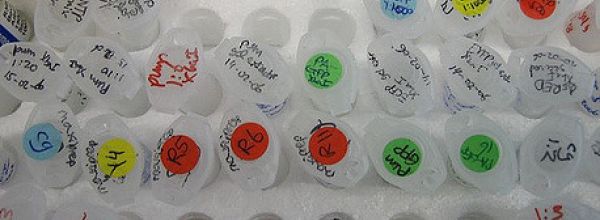All scientists should be involved in some aspect of outreach.
There. I said it.
I know, I know. This goes completely against why most scientists pursued their careers in the first place: to dedicate their lives to discovery, and to do so alone. With minimal human interaction, especially with non-scientists.
Why You Should Reach Out
Hear me out: outreach is incredibly important to science. Seriously. Think about it: what was it that got you excited about science when you were younger? Was it being mesmerized by thunder and lightening? Or maybe your mind was blown after seeing how salt could make ice melt?
Now, try to remember when you realized you wanted to be a scientist. Who pushed you to pursue that kind of crazy career? Who made you believe you could do it and kept that fire of inquisitiveness alive in your belly? Aside from your parents, I would bet money that there was a teacher involved.
The art of teaching is no small feat, and those that have mastered it are worth their weight in gold. Teachers come in all shapes and sizes, from your amazing high school chemistry teacher who’s excitement about science inspired you to become a scientist (hi Mr. Johnson!), to an expert you heard on a podcast that finally unraveled all the questions you had about a particular topic. Teachers are invaluable creatures in their ability to make learning fun and accessible and are especially necessary for keeping interest in STEM subjects alive and well.
So, why is it that once we are established as scientists we close ourselves off from aspects of teaching? Outside of a few summer students, most labs do not participate in any science education, and it kills me. This is such a shame, because now WE are the experts! We have the power to get people excited about science and to change conceptions on what people “think” they know. Importantly, it is our responsibility as experts in our respective fields to share our knowledge any way we can.
If my impassioned speech on our duty to the masses has not inspired you to search for science outreach opportunities, here are three specific reasons why you should change your mind:
Science Outreach is Important…
1) For Keeping the Public Interested in What is Going On
Let’s be real: the majority of the world has no idea what you work on and probably isn’t very interested in it. This truth bomb is even more dismal when you factor in decreased lack of government-sourced science funding on the whole—now it REALLY seems like no one cares. But you’re wrong!
One of the biggest reasons for lack of science interest is a lack of passion and communication from someone truly invested in the topic. Lucky for the rest of the world, that’s where you come in. Not only will your excitement be contagious, you may also be able to convince the public that your research is worth their philanthropic efforts. Now everyone wins: they walk away with more knowledge, and you can finally buy that new pipette set you’ve been eye-ing.
2) Because No One Wants to be Taught by a Dummy
In an age where a mass amount of information is at our fingertips, it’s easy to be persuaded by a good argument or viewpoint. Unfortunately, as we are all aware, a lot of this information is garbage. Without the wherewithal or expertise to discern between pseudo and real science, most scientific concepts are completely misrepresented by mainstream public.
Until, that is, an expert like you comes to town. Your years of education and deep understanding of your topic of interest makes you the perfect person for clearing up misconceptions. Moreover, if you’re talking to kids as a “real life” scientist, you may as well be a superhero, and they’ll hang onto your every word. In conclusion, just saying that you’re a scientist has more pull than you’re likely aware of, so use it for good and teach these people some science!
3) Because No One Wants to BE a Dummy
I don’t know about you, but my dad hates to be wrong. HATES IT. But he also doesn’t like to ask questions for fear of looking misinformed. Ah, the inevitable Catch-22. After years of structured rhetoric is complete (think high school/college), it falls on each individual to continue their own education. Science outreach allows for continuing education to be easily accessible, and in a more relaxed environment than you typically find in a classroom. So, you can feel like you’re getting your research across to a diverse audience, and the egos of fathers everywhere remain intact.
How to Reach Out
Now that I’ve convinced you of how important science outreach is, how can you get involved, you ask?
- Research local museums and/or science centers. They are always looking for volunteers.
- Take a peak at your own institute. Many places support some kind of outreach committee or department.
- When in doubt, google it. The interwebs are full of information of how to get involved.
- If you’re a parent, talk to the science teacher(s) at your F1’s school. We are all too aware of the low salary ranges of teachers, and their budgets for classroom supplies are humorously inadequate. Their creativity for stretching the dollar only goes so far, so how cool would it be to have a real life scientist to come in and talk/help in the classroom for free? Warm and fuzzy all around.
Good luck and have fun!







